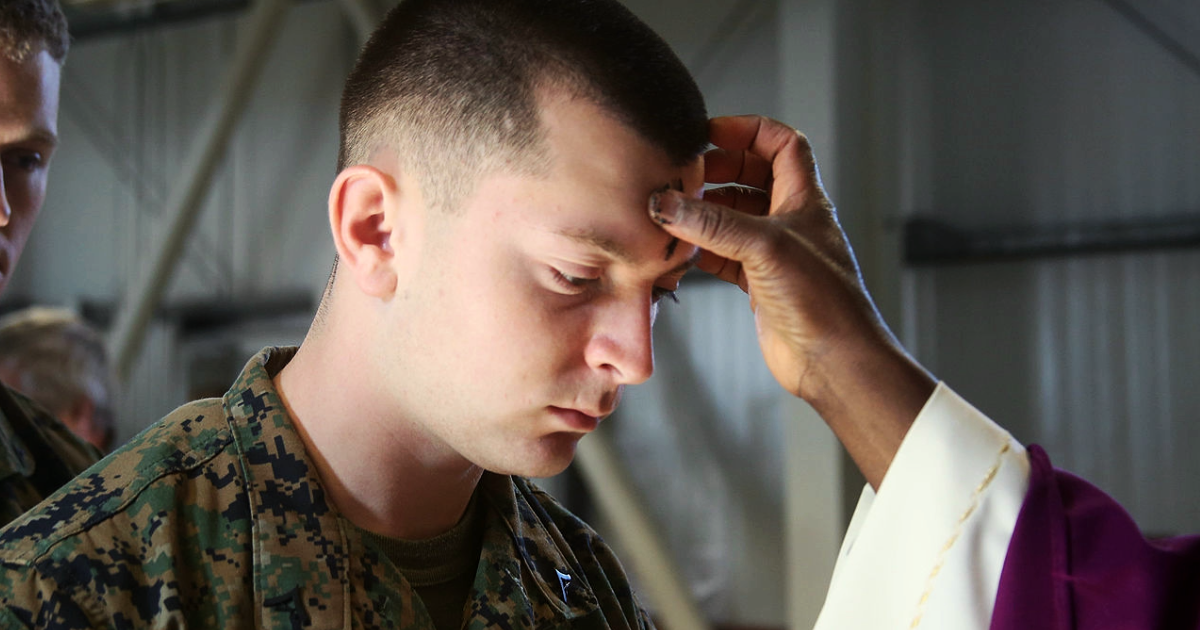“He ascended into heaven
and is seated at the right hand of the Father.”
When we recite this line in the Creed at Mass, it may simply seem like a tidy but not especially important bookend to the more important doctrines of the Trinity, Incarnation, and Resurrection.
When the Feast of the Ascension rolls around, we may be tempted to think the Ascension is a “second-tier” event. If so, we are out of step with the New Testament writers and some of the Church’s greatest theologians.
St. Luke thought the Ascension was so important that the event served not only as the fitting climax to Jesus’ victory over sin and death in his Gospel, but is retold again at the beginning of the Church’s story in Acts (Luke 24; Acts 1).
In an ancient homily on this Feast, St. Augustine pointedly said,
“[The Feast of the Ascension] is that feast which confirms the grace of all the feasts together, without which the profitableness of every feast would have perished. For unless the Savior had ascended into heaven, his Nativity would have come to nothing … and his Passion would have borne no fruit for us, and his most holy Resurrection would have been useless.”
Let’s look at four reasons why the Ascension is so important to us:
- The Ascension gives us access to our heavenly Father’s house and our eternal happiness. “Only Christ can open to man such access that we, his members, might have confidence that we too shall go where he, our Head and our Source, has preceded us” (Catechism of the Catholic Church 661; John 14:2).
- As it did for his first disciples, the Ascension is intended to produce joy and worshipful obedience in the lives of Christ’s disciples. Since Christ is reigning at the right hand of his father over his kingdom, we joyfully work to spread that reign within us and around us (CCC 669, Luke 24:52-53).
- The Ascension means that Christ and his father could now send the Holy Spirit to fully reveal the Trinity, to guide the Church into all truth, and to unite us to Christ’s mission, “If I do not go away, the Counselor will not come to you; but if I go, I will send him to you” (John 16:7, 13; CCC 690, 737).
- Finally, the Ascension is a source of daily hope because it reminds us that Jesus is coming back again, the same way he departed: “This Jesus, who was taken up from you into heaven, will come in the same way as you saw him go into heaven” (Acts 1:11b). His return will mean the final triumph of good over evil, a new heaven and and a new earth. “That is why Christians pray, above all in the Eucharist, to hasten Christ’s return by saying to him: Marana tha! “Our Lord, come!” (1 Corinthians 16:22; Revelation 22:17, 20).
Stained glass by François Denis, sourced from Wikicommons
This article was first published on Ascension Blog’s former home, The Great Adventure Blog, May 2015.






I am just wondering why our very intellectual and spiritual leadership of the church in the early days made the scene of Ascension of our Lord being the important doctrine in revealing Holy Spirit had become the cause of schism in the case of filioque?
It is unfortunate that language differences between Western and Eastern Christianity contributed to disunity among brother Christians, but the Schism had many and complex causes apart from the filioque. There is a balanced presentation of the issues in the Catechism, Nos. 238-248, and there have been great strides made on both sides to move ahead in unity, here’s an interesting article from the USCCB on the issue as well. Let us unite our prayers to Jesus, that we all may be one, as he and the Father are one (John 17:21).
http://www.usccb.org/beliefs-and-teachings/ecumenical-and-interreligious/ecumenical/orthodox/filioque-church-dividing-issue-english.cfm
The division did not happen without sin.